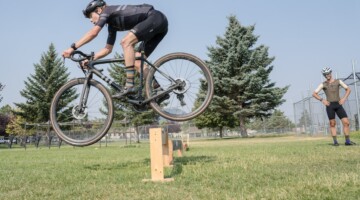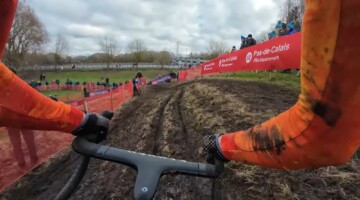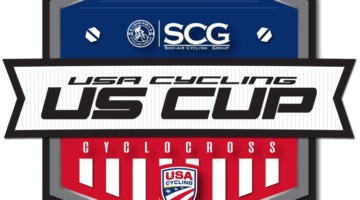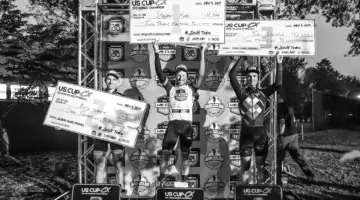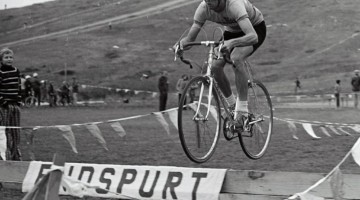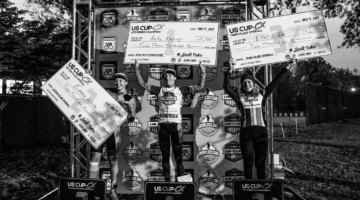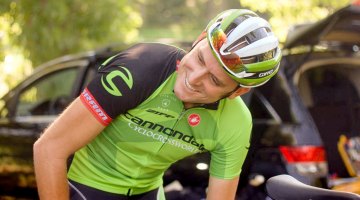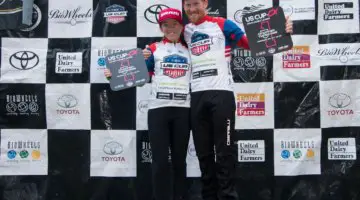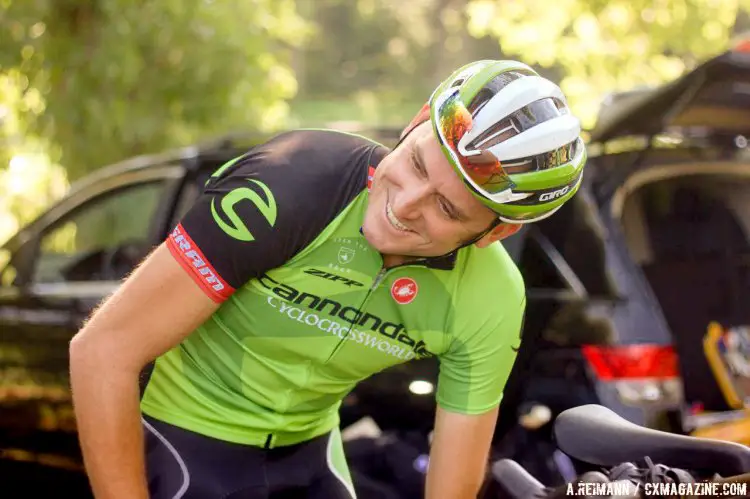
Cannondale p/b Cyclocrossworld.com team training © Andrew Reimann / Cyclocross Magazine
Ryan Trebon began last season as a rider set on devoting himself to a healthy race ethic, skipping the sight-seeing in China and preparing himself for the first UCI event of the year. After a huge injury to his back only a week later in a hometown race, Trebon spent the season trying to recover back to form in time for Nationals. Last week at the Cannondale p/b Cyclocrossworld.com cyclocross camp, we caught up with Trebon to discuss his goals for the season as well as his thoughts on the development program. You might be surprised by his opinions on the current state of the American cyclocross calendar.
Cyclocross Magazine: Last season you had a serious crash. How has the recovery been?
Ryan Trebon: I still feel a little bit of pain every once in a while, limited mobility. I didn’t take the injury as seriously as I should have. Most people think that ‘Oh, I really need to just push through this.’ But it was serious, and I pushed it a little too early, a little too hard. It was a mistake I paid for until June of this year.
CXM: Have you been competitively racing?
RT: I’ve raced in some local races here and there, and plenty of rides. The hardest part about dealing with injuries is dealing with the setbacks. You work for the entire year and you have nothing to show for it. For me it’s just frustrating. I got to the point where I forget what it’s like to feel good. I haven’t felt strong or fast on a bike since, I don’t know, Boulder 2013. During the summer, you do racing, but you never really get to that point.
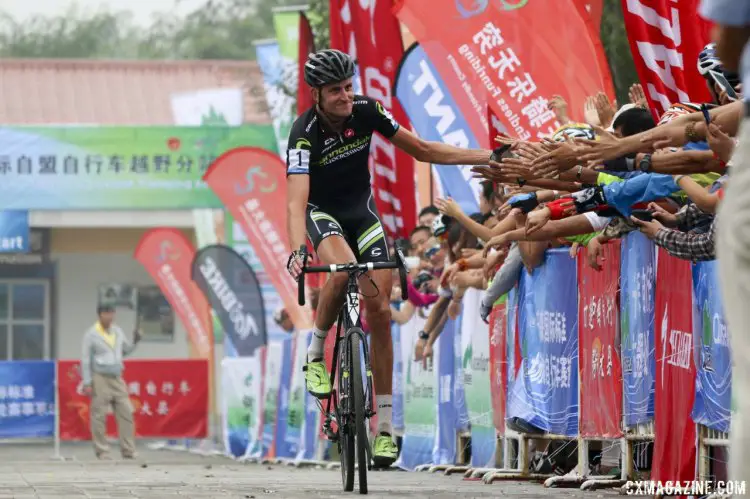
The crowd came out and welcomed racers home. Ryan Trebon, second, in his last UCI points-winning cyclocross race. 2014 Qiansen Trophy cyclocross race, China. © Cyclocross Magazine
Last year I did China, and I felt good despite traveling, and did pretty well. I came home and I was pumped up, and shit happens. The whole season I chased discomfort. This whole summer has been the same way. For me, the sensation of being powerful motivates me more than winning races. When you feel that way, you know that the race wins will come, but the major goal for a lot of people is getting to that point.
CXM: Would you consider that your goal for this year, or do you have milestone goals?
RT: I never set out on a season to do X, Y and Z. I know if I’m riding well, and consistent in the front of the races, that’s what I’m looking for.
CXM: Will those weekends be targeting C1s or Pro CX Calendar races?
RT: Not necessarily. I think the Pro CX Calendar is a waste of time. I don’t think it’s a good allocation of money, it doesn’t fix anything, it only dilutes everything. Instead of fixing the problem of USAC figuring out which races to go to, it just lets everybody enter, and that’s the easy way out. Instead of saying, this race does a really good job, this one doesn’t, the Pro CX just lets everyone in. Sure, you’ll make some people upset [if you’re more selective with the calendar], but at the end of the day, do you want people to like you or do you want to run a really good series?
I think cyclocross in the US has been suffering more since the USGP went away. The USGP didn’t do everything perfect, but they were able to bring media in and create a series that people cared about. Like you don’t know who is going to New York this year, maybe I’ll go, maybe Jeremy will go, maybe everyone will go, but no one knows. During the USGP, everyone went to every race and it was a big deal. Everyone liked it. We need a policing series.
CXM: Some say one of the endgame goals was to encourage Worlds to come to the United States at Louisville. It did that, but it was losing money on the way, and fast.
RT: It was, and everybody makes mistakes. I think that one of them was getting away from the key markets. The big races were sustainable, but it was trying to grow I areas it shouldn’t. Even look at that venue at Louisville. That’s a great race that’s attracted lots of people, and it’s been there a long time. Sure there’s no great answer to any of this, but the USGP was hands down a better solution than we have now.
CXM: The level of competition is growing since the time of the USGP. What do you think would help the development of Junior cyclocross most in the United States?
RT: Not more races, we have enough races. I think Juniors need places to showcase themselves against each other, and not just have a spread out multitude of series. Instead of Juniors in New England, Juniors in the Midwest, all staying within their area and then only meeting up at Nationals, we need a series that encourages them to participate in it. You need a place for kids to go.
Right now there are three or four programs that help these riders. The rest look at the mountain or the road and take up those. We need a support or structure for them since there isn’t room for them now.
CXM: Speaking of changing trends, what’s your take on the latest technology over the last year. Anything excite you?
RT: We already moved to HydroR and after that it has really been the small improvements. There’s nothing groundbreaking. The thing I’m most excited about is the latest Clement tires we’ve been working on [Editor’s note: Trebon is sponsored by Clement despite the rest of the team riding Challenge]. We’re working on expanding the brand and meeting the bottom line… We’re pushing on moving tubeless and making everything tubeless by later in the season.
CXM: Does that mean we’ll see you riding on tubeless?
RT: Not for racing, but for training and the road side, and especially gravel. It makes things reliable.
CXM: What do you think it will take to start feeling good again in the season. What will your week by week training look like?
RT: I do a lot more volume than other people. I don’t like VO2 max intervals and high intensity riding. I like to get out and do the three to four hour rides, mix stuff up while you’re training. I don’t know if it’s just me, but I like the fatigue feeling. Even in the season, I will like to ride four hours that Friday. If I only spend one and a half hours on my bike, I just don’t feel as good, [the legs] feel closed off. I like my time on my bike.
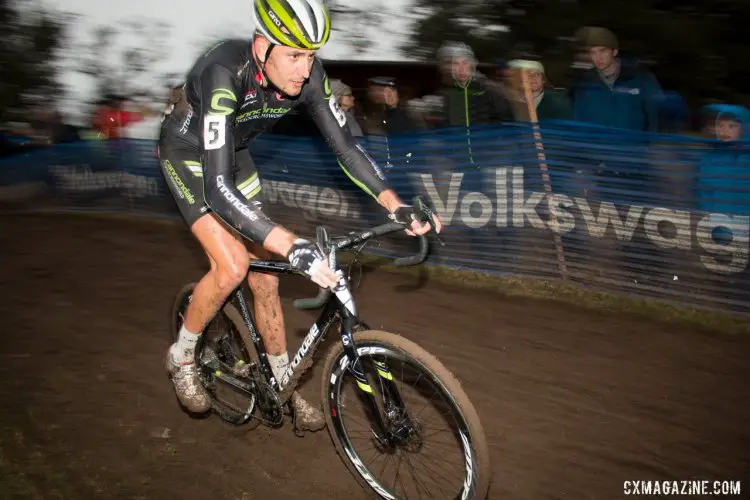
Ryan Trebon started strong in Austin, although he finished right outside the top ten. © Cyclocross Magazine
CXM: You looked like a natural [at the Cannondale cyclocross camp], showing juniors lines. Do you ever see yourself as a mentor?
RT: I don’t like giving advice to people unless they ask for it. For [the Juniors], they’re younger, and aren’t necessarily looking for your advice. For them I just like to keep it fun, joke around. Younger riders don’t always think about some of the aspects, such as bike setup, tire pressure. There’s so much going on during a race, and some think that it’s just about riding around, but it’s not. Your brain should be occupied 100%, and when it’s not, you’re going to crash. So it’s about offering advice when you can, but in the end, it should be about having fun.
CXM: What is the biggest value of coming here and being a team?
RT: It’s a good reminder of what you’re doing. Sometimes you can get lost into thinking you’re doing something grand, but this is just about having fun, running around, making things enjoyable.
During the season, [the Juniors] race in the morning, and we race in the afternoon. Many of us are busy doing our thing, and no one has time to sit around and interact, you know joke around. This is such a great way for the team and the kids to get over the nervousness of thinking ‘oh, that’s Tim Johnson, oh it’s Ryan Trebon.’ We are able to put racing aside.
But I think the best part is bringing these kids and showing them what goes on on the other side of the brand and the company. Some of these kids are 14-15, and they get to see the people who do the other work, like the accounting and accounts management. That’s cool enough for me, because some of the people I met are just as [much] cycling fans as product people.
CXM: Absolutely. Thanks for your time, and have a great season.
Stay tuned for more pro rider interviews as we approach the cyclocross season. For a full feature on Tim Johnson, including his approach to his future in cyclocross as well as his ideas on developing talent in the United States, be sure to keep your eye out for the upcoming Issue 30 of the print magazine. Subscribe here.

